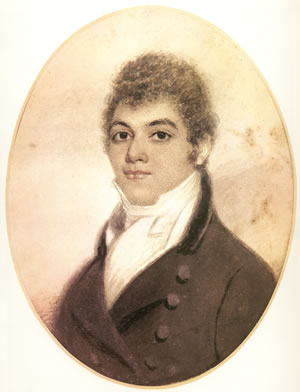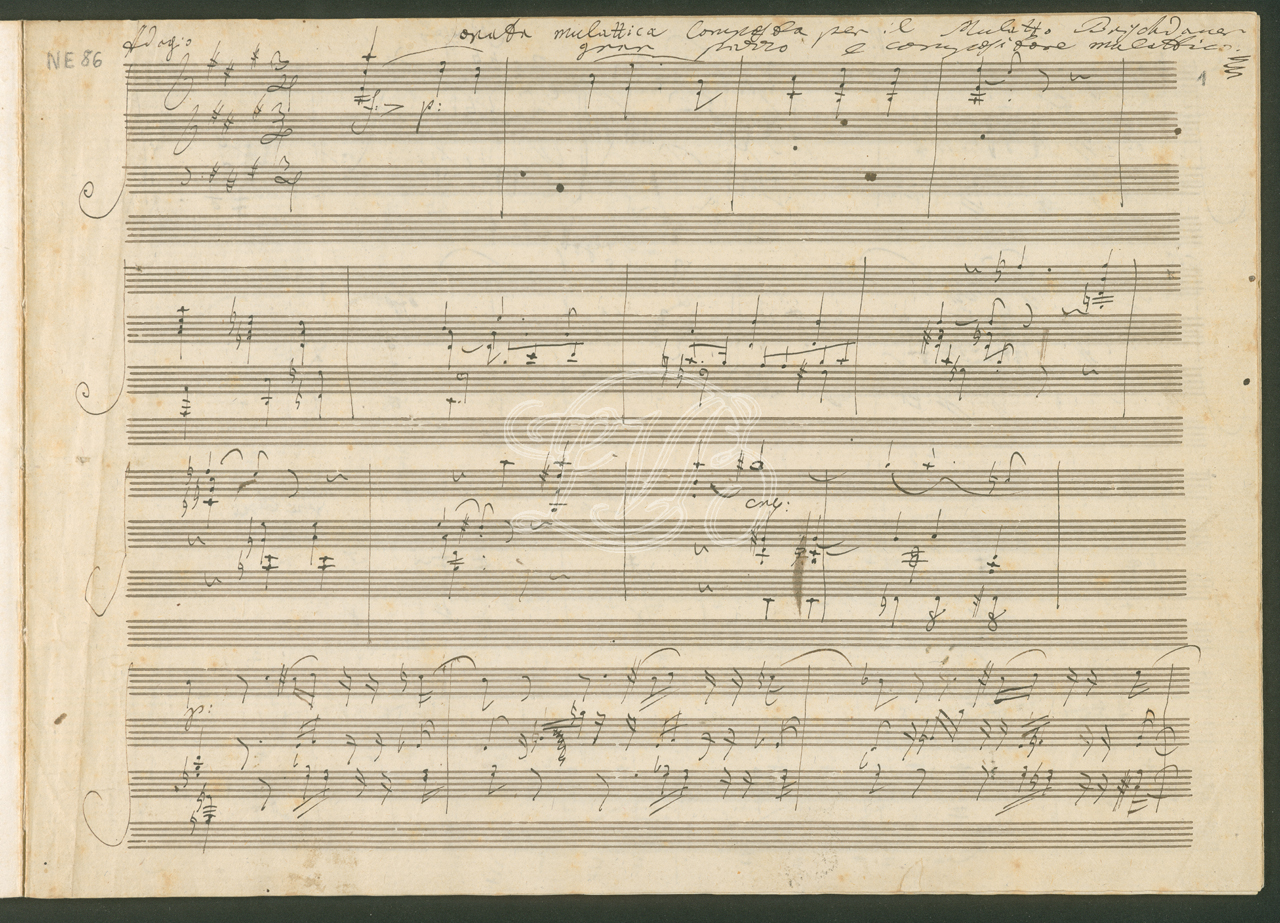
George Augustus Polgreen Bridgetower (1778 or 1780-1860) was a celebrated violinist who toured Britain and the continent. He was born in Biała in Austrian Galicia, the son of a Black West Indian servant and a white German or Polish mother, and was raised among Prince Nicholas Esterházy’s court musicians. A child prodigy, he made his debut in Paris in 1789 and played in Britain as well. He soon secured the patronage of the future King George IV, who furthered his musical education. He was elected to the Royal Society of Musicians, earned a music degree from Cambridge, and was one of the first members of the Royal Philharmonic Society. Like Joseph Boulogne, Chevalier de St. Georges, (1745-1799) and Ira Aldridge (1807-1867), Bridgetower was a Black celebrity whose work crossed European borders and challenged widespread preconceptions about racialized inferiority.
He left Britain for Dresden to visit his mother in 1802, and after giving concerts there was invited to Vienna, where he became fast friends with Ludwig van Beethoven. Beethoven was inspired by Bridgetower’s playing and revised a newly written piece, Sonata op. 47, just for him. They debuted the piece together on 24 May 1803 in the Augartensaal. Even though the composer’s last-minute revisions meant that Bridgetower had to play from Beethoven’s own hand-written manuscript the violinist’s brilliance shone through in the performance. His improvisation at one point led Beethoven to leap from his seat, hug Bridgetower and insist on an encore: “Once again, my dear boy!” (“Noch einmal, mein lieber Bursch!”). Although the piece was originally written for and dedicated to Bridgetower, he and Beethoven had a falling out that may have involved a woman. Consequently, when Beethoven published the sonata in 1805, he dedicated it to the French violinist Rodolphe Kreutzer. Even though the two were not acquainted and Kreutzer never played the piece, it has been known as the Kreutzer Sonata ever since.
The image here is the original manuscript in Beethoven’s own hand that Bridgetower played from in May 1803. In the upper-right-hand corner Beethoven has written a light-hearted dedication to his friend, the “great mulatto composer and lunatic.”
Jeff Bowersox
deutsch

The dedication in the upper-right-hand corner reads:
Opera mulattica Composta per il Mulatto Brischdauer
gran pazzo e compositore mulattico
Mulatto work Composed for the Mulatto Brischdauer
the great mulatto composer and lunatic
Source: Ludwig van Beethoven, Sonate für Klavier und Violine (A Dur) op. 47, 1 Satz, p. 2, Partitur, Autograph, Beethoven-Haus Bonn, NE 86. ©Beethoven-Haus Bonn.

Beethoven performs with his friend George Bridgetower, the “great mulatto composer and lunatic” (1803) by Jeff Bowersox is licensed under a Creative Commons Attribution-ShareAlike 4.0 International License. Permissions beyond the scope of this license may be available at https://blackcentraleurope.com/who-we-are/.